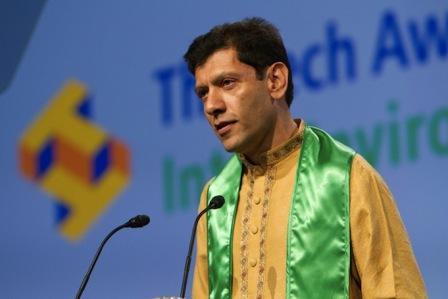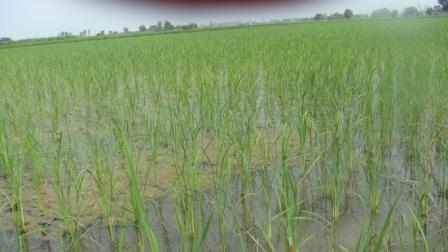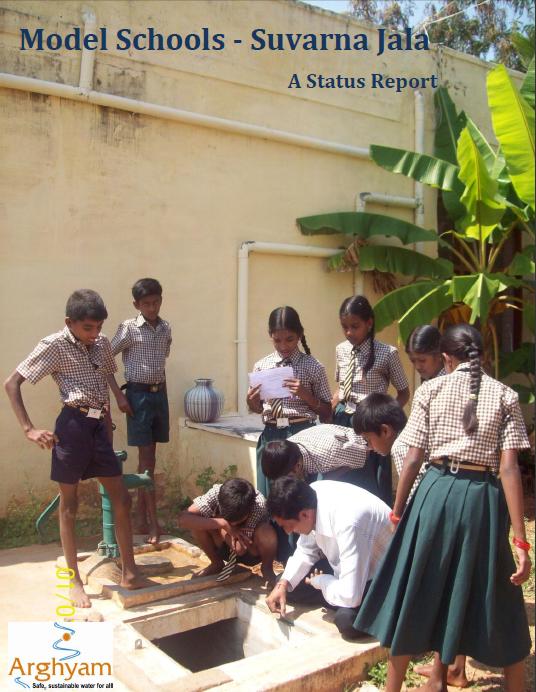/sub-categories/people-and-organisations
People and Organisations
National Rural Livelihoods Mission – Framework for implementation by Ministry of Rural Development
Posted on 16 Dec, 2010 07:46 PMThis document prepared by the Ministry of Rural Development (MoRD) presents the framework for implementation of National Rural Livelihoods Mission. The key challenge, in India is to ensure that the economic growth is inclusive and leads to significant reduction of rural poverty.
Farm Innovators – A compilation by the Indian Council of Agricultural Research (2010)
Posted on 09 Dec, 2010 09:23 PM This publication by ICAR on “Farm Innovators-2010” brings in a paradigm shift towards participatory technology development. Apart from innovations and scientific package of practices developed and transferred from R&D institutes, innovations in the form of grassroot level technologies and methodologies developed by some of the innovative farmers and rural youth have also been accepted across the system.
This publication by ICAR on “Farm Innovators-2010” brings in a paradigm shift towards participatory technology development. Apart from innovations and scientific package of practices developed and transferred from R&D institutes, innovations in the form of grassroot level technologies and methodologies developed by some of the innovative farmers and rural youth have also been accepted across the system.
NASA study finds earth's lakes are warming
Posted on 01 Dec, 2010 11:14 AM Lake Tahoe, seen here from Emerald Bay, was one of the primary validation sites for the global lake study. Image credit: NASA/JPL-Caltech
Lake Tahoe, seen here from Emerald Bay, was one of the primary validation sites for the global lake study. Image credit: NASA/JPL-Caltech
Peer Water Exchange (PWX) receives 2010 Intel Environment Award
Posted on 29 Nov, 2010 04:40 PM
The Peer Water Exchange (PWX) was awarded the 2010 Intel Environment Award today. PWX, a project of Blue Planet Network, is a combination of process, technology platform, and people designed to unlock the global capacity and creativity of individuals, philanthropies, businesses and implementers to solve the global safe drinking water and sanitation crises.

Direct seeding of rice A simple solution to India s water crisis?
Posted on 26 Nov, 2010 11:57 AMIn partnership with the Columbia Water Center, researchers from Punjab Agricultural University have initiated a multi-year project to implement and field-test diverse water-saving technologies, practices and policies aimed at reducing agricultural water use in the state of Punjab, particularly among rice farmers. In last year’s trial, the most successful project involved the installation of inexpensive tensiometers in the fields of over 500 farmers, yielding water savings of 30-35 percent.
Concurrently with the tensiometer trials, the team also recruited a smaller number of farmers to adopt a different way of cultivating rice altogether: Direct seeding of rice.
In traditional rice cultivation, rice is sprouted in a nursery; sprouted seedlings are then transplanted into standing water. With direct seeding, rice seed is sown and sprouted directly into the field, eliminating the laborious process of planting seedlings by hand and greatly reducing the crop’s water requirements.
 Conventional rice production requires standing water
Conventional rice production requires standing water
"Indian rivers have not been understood as ecosystems but are treated as conduits of water or wastewater" - Interview with Dr. Brij Gopal
Posted on 17 Nov, 2010 04:42 PMDr. Brij Gopal, Vice President, National Institute of Ecology and former Member, Working Group on Minimum Flows, constituted by the Water Quality Assessment Authority, talks to Parineeta Dandekar, India Water Portal about the urgent need of freshwater flows in Indian rivers, and the legal and institutional set ups required to ensure this.
Rating system for water efficient fixtures - Survey by Centre for Science and Environment (2010)
Posted on 15 Nov, 2010 11:26 PMWater use in buildings, accounts for a high percentage of overall water use in cities. With development and growth there has been an increasing demand for water in India. There has been a mismatch between supply and demand because of distribution losses, changing lifestyles etc leading to situations of conflict. Developing water fixtures that use water efficiently is key to reducing this mismatch.
Model Schools: Suvarna Jala - A status report by Arghyam (2009)
Posted on 15 Nov, 2010 10:46 PM This is a status report of Arghyam's sponsored efforts to develop and showcase community managed water and sanitation systems in 17 schools of 7 districts of Karnataka.
This is a status report of Arghyam's sponsored efforts to develop and showcase community managed water and sanitation systems in 17 schools of 7 districts of Karnataka.
The Government of Karnataka through its Suvarna Jala Yojana aims at providing drinking water in 23,683 rural government schools. This was funded to the tune of Rs 7735 lakh. Arghyam conducted a survey of this scheme in 2007 in 7 districts to ascertain the status of the scheme. The survey found out that out of the 1269 rainwater harvesting structures completed by November 2006 only 140 structures were functional.
Climate change and its impact on groundwater – A presentation by ACWADAM
Posted on 13 Nov, 2010 09:38 PMThis presentation by ACWADAM deals with climate change and its impacts on long-term replenishment of groundwater. The presentation provides an overview of the current insights and knowledge on climate change impacts and gives an overview of best options for developing and safeguarding groundwater resources.
Launching Samajik Parivartan Yatra
Posted on 25 Oct, 2010 01:29 PMManual scavenging is the most obnoxious and inhuman practice violating the dignity and human personhood of safai karmacharis. It involves the engagement or employment of sections of people to manually dispose human excreta from dry latrines with bare minimum aids such as scrappers, brooms and baskets.
Manual scavenging is integrally linked with caste system and is imposed on certain dalit sub-caste groups particularly on their women. As a result all persons engaged in manual scavenging are dalits, and of them 82% are women.